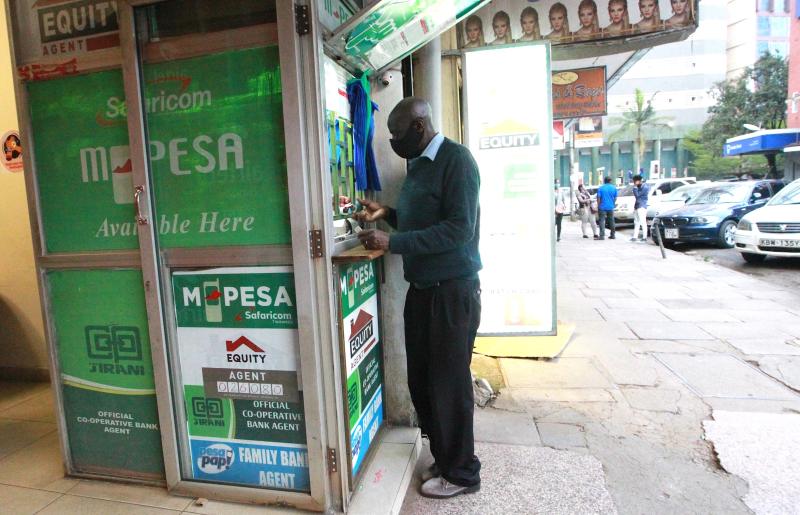Mpesa agent shop serving a customer in Nairobi on November 16, 2020. [Jonah Onyango, Standard]
×
The Standard e-Paper
Stay Informed, Even Offline

Safaricom wants M-Pesa to start issuing high-value lending such as car loans if the proposal to split the mobile money platform from the telecommunication business is passed.
The telco says separation will leave Safaricom under the Communications Authority of Kenya (CA) while M-Pesa will be regulated by the Central Bank of Kenya (CBK), allowing it to deepen its financial services.